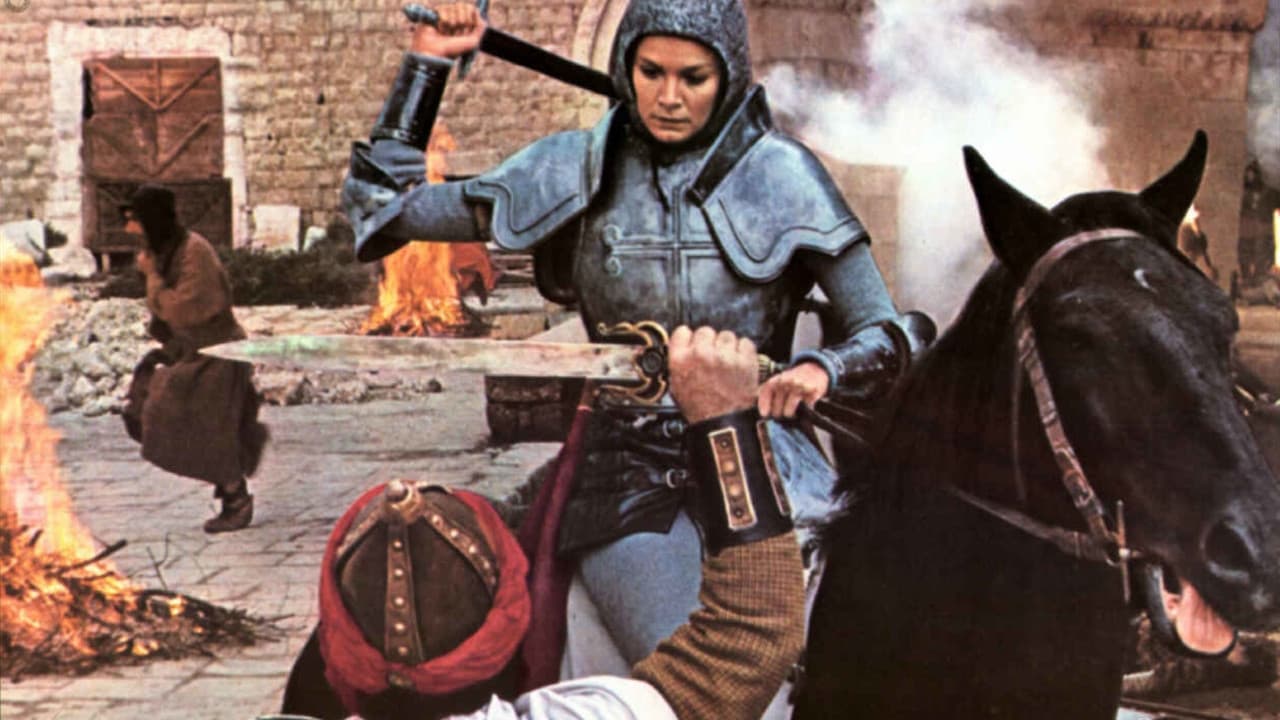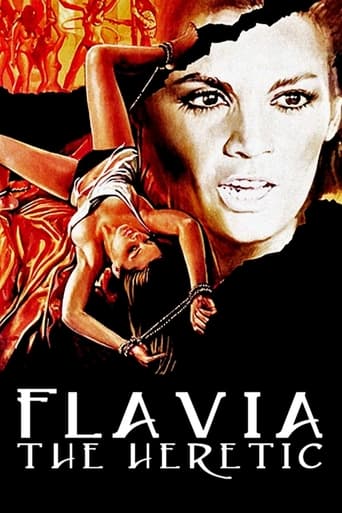

just watch it!
... View MoreIt's the kind of movie you'll want to see a second time with someone who hasn't seen it yet, to remember what it was like to watch it for the first time.
... View MoreIt’s fine. It's literally the definition of a fine movie. You’ve seen it before, you know every beat and outcome before the characters even do. Only question is how much escapism you’re looking for.
... View MoreYes, absolutely, there is fun to be had, as well as many, many things to go boom, all amid an atmospheric urban jungle.
... View MoreThere is so much that can be said about this film. It is not your typical nunsploitation. Of course, there is nudity and sex with nuns, but that is almost incidental to the story.It is set in 15th Century Italy, at the time of the martyrdom of 800 Christians at Otranto. The battle between the Muslims and the Christians takes up a good part of the film. It was interesting when everyone was running from the Muslim hoards, that the mother superior would ask, "Why do you fear the Muslims,; they will not do anything that the Christians have done to you?" Certainly, there was enough torture on both sides.Sister Flavia (Florinda Bolkan) is sent to a convent for defying her father. In the process, she witnesses and endures many things: the gelding of a stallion, the rape of a local woman by a new Duke, the torture of a nun who was overcome during a visit by the Tarantula Sect, and a whipping herself when she ran off with a Jew. The torture was particularly gruesome with hot wax being poured on the nun, and her nipples cut off.Sister Flavia is bound to continue to get into trouble as she questions the male-dominated society in which she lives. She even asks Jesus, why the father, son and holy ghost are all men.Eventually, she joins the leader of the Muslims as his lover and they sack the convent. Here is where you see more flesh than you can possible enjoy at one time. But, tragedy is to come. She manages to exact sweet revenge on all, including the Duke and her father, but finds that the Muslim lover treats her exactly the same. She is a woman and that is all there is to it.I won't describe what the holy men of the church did to this heretic at the end, but it predates the torture of Saw or Hostel by decades.Nunsploitation fans will be satisfied with the treats, but movie lovers will find plenty of meat to digest.
... View MoreFlavia the Heretic has been put in with the 'nunsploitation' sub-genre, although personally I'd say it fits in closer with the historical period epic genre. Most of the time when these films say that they're "based on actual events", you have trouble believing it; but that's not the case here, as although I don't know anything about Italy in the 1600's, the film is of a far higher quality than most nunsploitation garbage, so it could well actually be based on a true story. I have to admit I prefer the trashier side of nunsploitation myself; Joe D'Amato's masterpiece "Images in a Convent" being my favourite so far, but this film deserves respect for its classy and bloodthirsty historical portrait. The film focuses on the title character: Flavia. Flavia is a nun at convent that is invaded by a 'Tarantula Sect', and this sect proceeds to insult the nuns and their Christian beliefs by defiling their place of worship. Flavia decides that she cannot take this blasphemy, and flees the convent, with revenge in mind...The blood, sex and violence in this film actually has more power than that in a lot of similar movies. The whole film is very realistic, and this is a huge benefit to it as this allows director Gianfranco Mingozzi to create a truly macabre and morbid atmosphere. Much of the plot goes towards building up the central character, and this sets Flavia the Heretic apart from many of it's seventies counterparts as it means that the character gets developed in a way that makes sense, and it's clear that the director and everyone involved wanted to make a serious piece of art. Florinda Bolkan is excellent in the title role, and brings some real credibility to the film alongside a good support cast. There are some truly nasty sequences in this film; including many shots of people being spiked, a decapitation, a very realistic 'skinning' scene and plenty of rough sex. But none of this appears out of place as the director ensures that the graphic violence fits with the rest of the film. Overall, I can't call Flavia the Heretic a favourite of mine; but it deserves more respect than a lot of these films do, and it's definitely worth seeing.
... View MoreFlavia the Heretic is an undeniable work of art and probably my number one recommendation to state that the euro-exploitation cinema is severely underrated and not to be ignored. This is an intelligent and complex film, beautifully realized and surprise pretty damn accurate! This is more than just meaningless sleaze or gratuitous violence and it's about time those prudish film committees who categorize Flavia as forbidden trash reckon this as well. Flavia is a beautiful 14th century adolescent, forced to live the life of an obedient nun in a strict convent. She refuses to accept her being inferior just because she's female and she curses her fellow sister for being so tolerant about this. After a fruitless attempt to escape, she befriends another rebellious nun and she even guides a troop of bloodthirsty Muslims into the walls of the convent.Flavia is a downright mesmerizing film! Almost impossible to believe that director Gianfranco Mingozzi managed to make it appear so realistic and so disturbing. I challenge you to come up with a title that centers on the topic of pioneer-feminism more intensely than Flavia does. Several sequences are quite shocking (on the verge of nightmarish, actually) as the camera zooms in on brutal rapes, torture and mutilation. Yet all this raw footage isn't just used to satisfy perverted gorehounds, mind you. I'm strongly convinced that they're part of the statement 'Flavia' is trying to communicate: Humanity (the Catholic Church in particular) historically proved itself to be a hypocrite and discriminating race and there's no use in denying it any further. Films like "Flavia, the Heretic" have the courage to question and openly condemn our precious ancestors and I truly admire them for it. Flavia is an outstanding and fundamental exploitation film because of its substance, but it's even brought to an higher level by the wondrous cinematography, the glorious costumes & scenery and a breathtaking musical score by Nicola Piovani. Florinda Bolkin is very convincing as the ambitious and headstrong nun but it's María Casares who steals the show as Sister Agatha. She's a man-hating and loud-mouthed nun who likes to urinate in the open field! Amen, sister!
... View MoreJust got this uncut on DVD, because I`m getting into sleazy horror and exploitation films. However, I was a touch disappointed with Flavia the Heretic. Yeah, there are a couple of nasty scenes, like the nipple slicing and stuff, but I`ve seen a lot worse. A generally good film, it dragged a little sometimes, and for the seventies, yeah, it was out there and controversial. I`ve just ordered Salo on DVD, I hope that`s more like what I want.
... View More